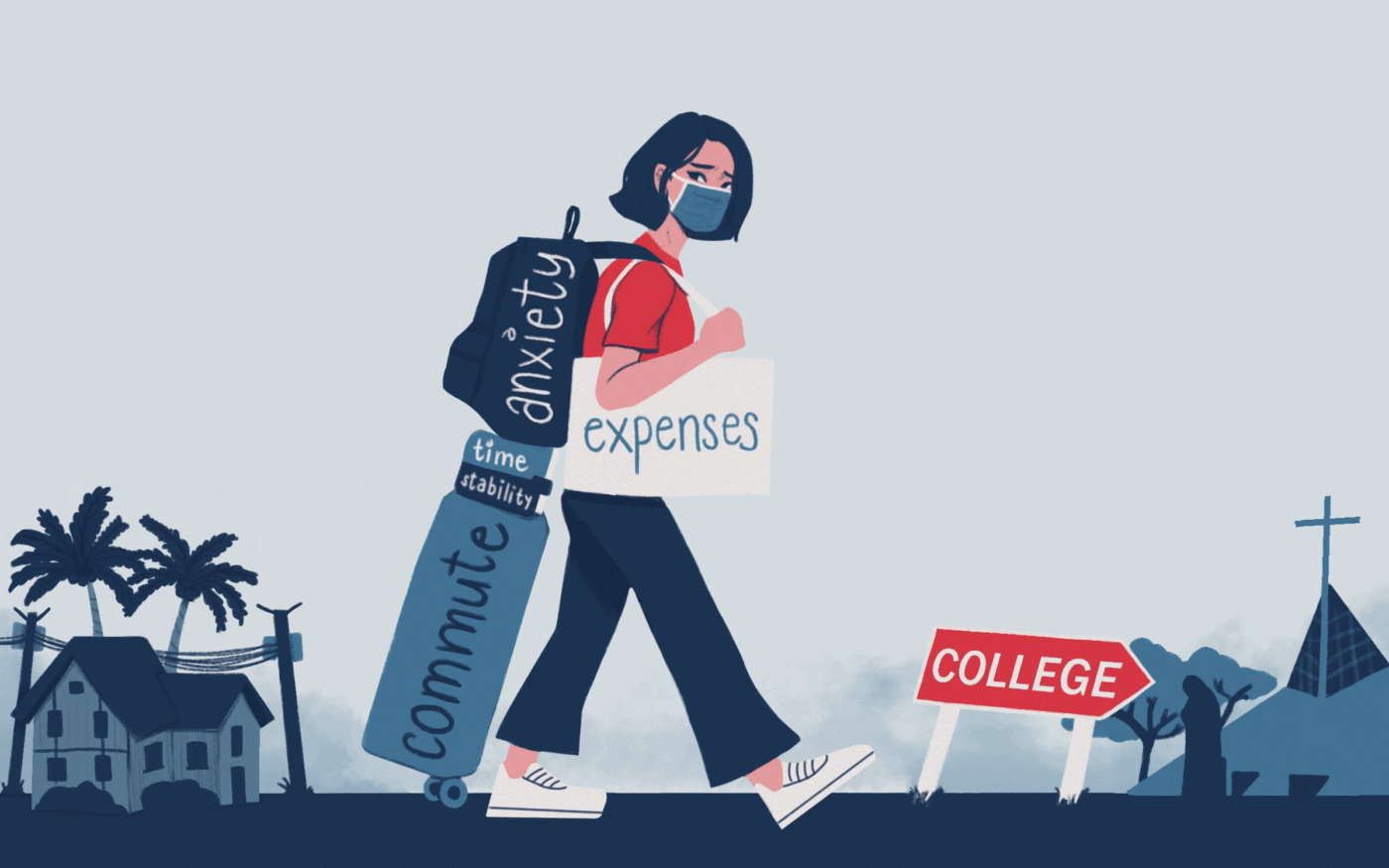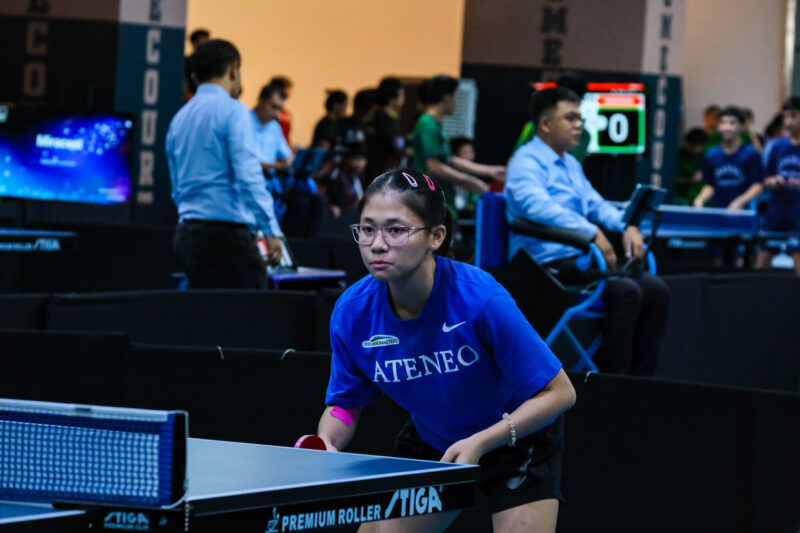Clutching their ticket in one hand and their luggage in the other, Loyola Schools (LS) provincial scholars rush to fulfill their dream of finally arriving on campus. Propelled by the return of onsite classes, they scramble to find lodging on campus amid soaring costs of living throughout the country.
While the University has begun granting dorm scholarships again, testimonies prove that this has not guaranteed a smooth landing for many scholars. Due to the limited budget for dorm scholarships and the scarce accommodations on campus residences amid the pandemic, others had to fund their own housing, trading off quality for affordability with their tight budgets.
Thus, LS scholars say that they must now contend with financial burdens and academic pressures to excel—all on top of dealing with the anxieties while far from home.
Leaving the nest
Among the growing population of LS scholars is Zylver Wayne Bautista (2 AB EC). Flying in from Abra Province, he was not spared from the obstacles on his way to Katipunan.
Bautista is an academic scholar with a dorm grant, which initially granted him a stay in the Ateneo Residence Halls (ARH). However, he was unsuccessful in securing accommodation there because of the Halls’ reduced capacity in view of the University’s COVID-19 health protocols. Thus, his grant was instead converted to an allowance amounting to Php 6,000. Unfortunately, other lodging options near the campus were still too costly for him. He was only able to find shelter in his friend’s house in Barangay Batasan Hills, about 9 kilometers away from Katipunan.
On top of lodging expenses, Bautista lamented that his daily spending for food and transportation in Metro Manila would have sustained him for a week or two in Abra. Amid such financial woes, he plans to spend his converted dorm grant on living expenses instead.
In contrast to Bautista’s lodging experience, Marchrius Danielle Gallardo (3 BS CS-DGDD) had a relatively turbulent-free experience preparing for onsite classes and campus residency. However, having yet to depart for her dorm as of writing, she worries about the troubles that await her at the end of the trip. Like Bautista, one of her apprehensions is dealing with finances and budgeting without her parents’ guidance. While somewhat daunted by this reality, she views this as a lesson on financial independence.
Adding to the already heavy baggage carried by scholars living away from family is the crippling feeling of homesickness.
Flight turbulences
As students residing away from their home provinces are no longer under the wing of their parents, they are also cut off from vital social support, according to Ateneo Bulatao Center Psychologist Karina G. Fernandez, PhD. She calls social support a “protective factor” of mental health.
“Whether it’s practical support [such as] your mom making your breakfast, or emotional support that you can talk to your best friend or your ate, or just companionship support—you have these people who will always go with you,” Fernandez explains.
The lack of such social support can drag scholars into a psychological nosedive. Fernandez explains that they become burdened by depression, waning interest in activities, and social withdrawal—all of which may result in dismal academic performance.
Addressing the lack of social support, she urges distressed students to open themselves up to an ever welcoming LS community while still keeping in touch with their families back home.
“Look for other sources of social support. Allow yourself to be vulnerable and reach out. There are people, individuals, groups, organizations, systems that are just waiting and begging for you to seek them out,” she says.
Fernandez cites two havens for scholars in the LS: Ateneo Gabay, and the Office of Admission and Aid (OAA), which has become more than just an office for scholars.
As early as AY 2021–2022, the OAA already began preparing for onsite classes with supportive measures for scholars, according to Scholarship Officer Christine Magboo. With more than 2,300 student scholars in the University, the OAA recognizes the need to efficiently address their concerns, particularly the lodging woes of those coming from the province.
Because of the high-cost accommodations, some scholars have considered working while studying. However, they are restricted from taking full-time jobs and are “strongly discouraged from engaging in part-time work” as stipulated in their scholarship contracts. Magboo explained that the OAA wants scholars to focus on their studies as having occupations may affect their academic performance.
To assist scholars, the OAA immediately compiled a list of off-campus dorms where scholars could stay. Magboo said the office also granted some provincial scholars with living allowances for food and other necessities, recognizing the rising commodity prices in the country.
Furthermore, OAA’s Scholarship Officers conduct regular individual consultations with the scholars to discuss their situation and well-being. As former scholars themselves, these officers hope that the scholars who come to them feel less doubtful of their abilities and more assured of their place in Ateneo.
Flying together
While living outside their comfort zones may seem daunting for Atenean scholars, the University’s support allows them to find a home away from their own. Just like any household, however, they understand that bigger problems may still come their way.
According to Fernandez, having a comfortable social environment within the campus is crucial during this adjustment period.
Similarly, Magboo also urges student scholars to find their niche in the Ateneo where they can relate to and feel safe. “If mayroon kang isang organization na tanggap ka, […] parang nakakadagdag ‘yun sa confidence (If you have that one organization where you feel accepted, that would boost your confidence),” she says.
For scholars and students alike, the journey does not simply end by arriving at Katipunan, as the challenges brought about by the online-to-onsite transition remain. Academically, Bautista expects a “major adjustment” during the first semester. For Gallardo, physically interacting with peers after two years of distance learning may be challenging.
Despite these predicaments, both of them try to look at brighter skies and appreciate this long-awaited chance to be back on campus—remaining hopeful that as time progresses, they hold onto their belief that the Ateneo is the place where they truly belong.







